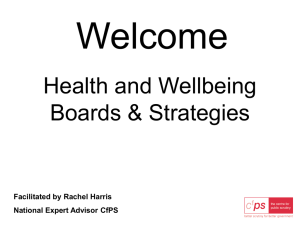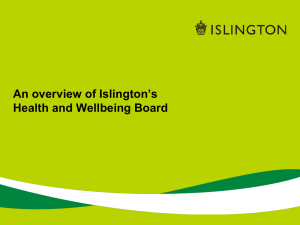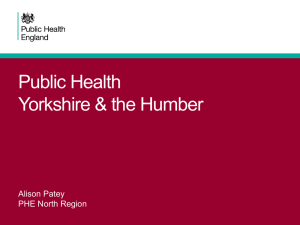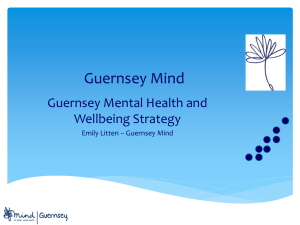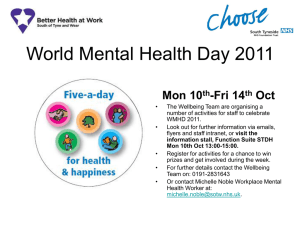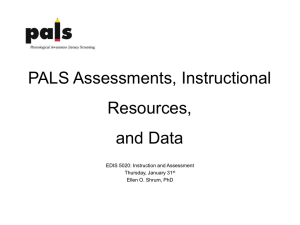Patient Advice and Liaison Service Devon , Plymouth and Torbay NHS
advertisement
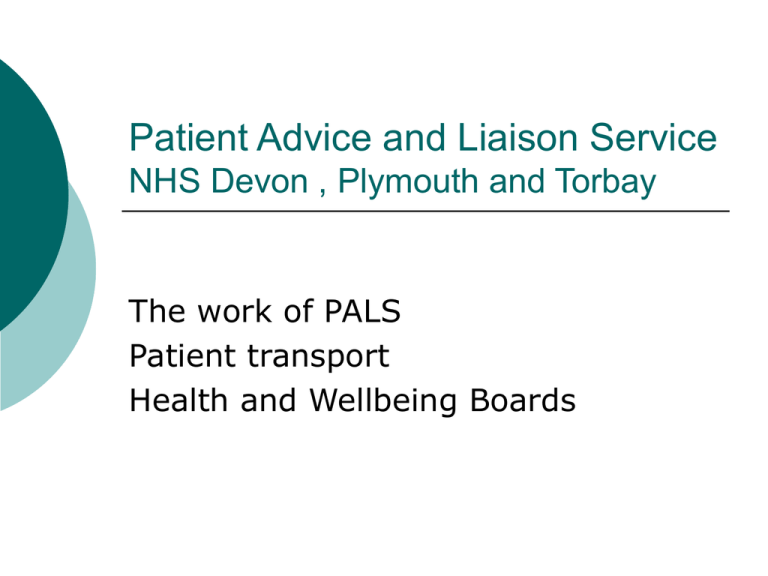
Patient Advice and Liaison Service NHS Devon , Plymouth and Torbay The work of PALS Patient transport Health and Wellbeing Boards PALS Providing information, advice, resolution of concerns, mediation and service improvement Working with the public and staff to learn and improve services Patient Advice and Liaison Service Created to provide a quick and informal route for patients, carers and staff to raise concerns about their healthcare services and get their problems resolved Confidential, based within NHS structures Seamless help for the public Using learning from patient experience to improve and change services PALS Present in: Hospital Trusts Community Hospitals & Care Services Trusts Mental Health Trusts Ambulance Trusts Primary Care Trusts Role of PALS in PCTs 1 Supporting patients in their relationships with primary care by mediation, negotiation and investigation Maintaining positive working relationships with contractors and their staff GPs Dentists Pharmacies Opticians PALS role in PCTs 2 Helping patients receiving care from a number of services or who fall between services Policy - prescribing, funding, national screening, travel costs, continuing healthcare processes, gaps in provision, NICE guidance, care pathways and local policy Commissioning and contracting - feeding in evidence from patients to improve and monitor provision Developing patient-focussed policies & information – Patient Transport, Being Open, Interpretation & Communication support Who are our clients? Patients Carers Relatives Friends Staff Clergy MPs Voluntary agencies Statutory agencies Others…. Patient Transport Forum Who do we share work with? Devon wide forum Hospitals trusts , community service providers Mental health services Childrens services Transport providers Voluntary sector Patient groups and PALS clients Doctors and other staff Devon County Council Transport for patients covering Emergency ambulance transport Non emergency medical transport Supported Transport- provided by ambulance trusts, private ambulances Voluntary sector Public transport Independent travel Aims of new forum policy To improve services to patients To improve value for money To improve partnership working New Shared Patient Transport Policy Journeys undertaken to receive services under NHS Act 2006 which are not primary medical or primary dental care Eligibility for transport based on medical need criteria Eligibility for discretionary assistance with transport e.g. frequent users Eligibility for reimbursement under the Healthcare Travel Costs Scheme (HTCS) and the procedure for applying for reimbursement Help with cost of travel Emergency and medical non urgent is free from NHS For other options some patients may have help with their costs Those on certain means tested benefits Those with low incomes and moderate/low savings. Priorities for next steps Maintain Single Points of Contact- NHS funding to support role of voluntary sector Train staff from all agencies Improve consistency of reimbursement Expand sharing of vehicles , joint working and improved management of demand and booking systems Single points of contact Assess patients needs for medical transport Make bookings for medical transport with NHS providers Advise patients on alternative options Use their local knowledge to solve problems Monitor problems and liaise with NHS to resolve for individuals and agencies Health and wellbeing boards New, coterminous with local authority areas Reps from senior councillors and managers for Health, Childrens Services and Adult Social Care, Healthwatch, Clinical Commissioning Organisations, Public Health, District Councils. Shadow role until April 2013. Role of the Health and Wellbeing Board A forum for key leaders from the health, public health and care systems to work together To improve the health and wellbeing of the population and reduce health inequalities. To understand communities’ needs, agree priorities and encourage commissioners to work in a more joined up way. With a duty to encourage integrated working for the purpose of advancing the health and wellbeing of the people in its area. “Shadow Health and Wellbeing Boards” by April 2012 followed by statutory Health and Wellbeing Boards by April 2013. Priorities draw on joint strategic needs assessments and joint health and wellbeing strategies establish a wider Health and Wellbeing network to engage the range of agencies, organisations and groups that influence the health and wellbeing of people in Devon ensure the delivery of improved health and wellbeing outcomes for the population of Devon, with a specific focus on reducing inequalities improve the health and wellbeing of children and families with complex needs Useful sources of information www.devonpct.nhs.uk for PALS and Patient Transport http://www.nhs.uk/NHSEngland/Healthcost s/Pages/Travelcosts.aspx for information on travel cost help http://www.devonhealthandwellbeing.org. uk/ for latest information on Health and Wellbeing Board

